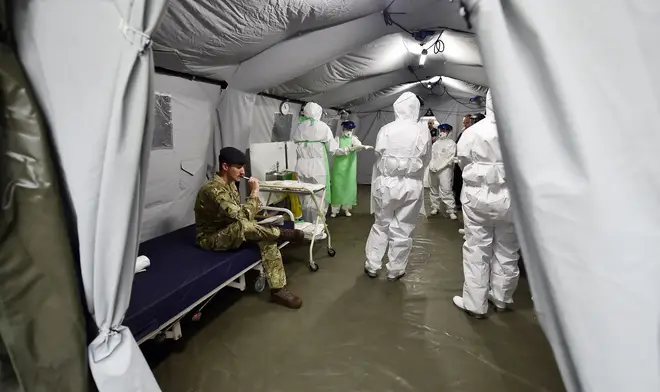
Paul Brand 7am - 10am
30 March 2020, 16:30

Coronavirus: NHS needs to be ready for most challenging week to date
As the UK comes up to the peak of the coronavirus curve, the NHS faces undoubtedly its toughest week ever.
Shaun Lintern is the Independent's health correspondent and he wrote an article over the weekend outlining the challenges that the NHS will face in the coming weeks as they fight coronavirus.
Mr. Lintern was speaking to Shelagh Fogarty as he broke down the issues that will be faced in the next month.
A main issue the NHS will face in weeks to come is trying to get its qualified nurses to treat as many patients as possible. He pointed out that volunteers will not be acting as nurses in these circumstances as "you can't just train an intensive care nurse overnight".
"An intensive care nurses job isn't something you can pick up very easily" the reporter told Shelagh. He wondered how nurses will cope with the potentially unbearable circumstances they'll be working through in the coming days as they treat as many coronavirus afflicted people as possible.
Speaking about how the NHS may cope with the onslaught of coronavirus victims, Mr. Lintern told Shelagh that there will be a relaxation on the rules of ratio of patients to nurses. Usually this ratio is 1:1.
"Nurses may look after up to six patients at once." The health correspondent warned, predicting a huge strain on the mental wellbeing of NHS nurses.

Mr. Lintern warned also of the "moral injury these staff could suffer" during the next few weeks, stating that the mass and pressure of work that will be on the shoulders of these NHS workers in the coming weeks will be colossal and nobody can prepare them for it.
There are "difficult times ahead for everybody" especially for those working in the NHS, the reporter stated.
Shelagh pointed out that "numbers are going to start to rise exponentially" in the coming days and weeks, which undoubtedly will put "tremendous pressure on the health service". She wanted to know how ordinary people can slow the strain on the NHS during this time.
The health correspondent revealed that the best way to help the NHS during this time is to "follow the rules and guidelines to help the NHS as much as possible".